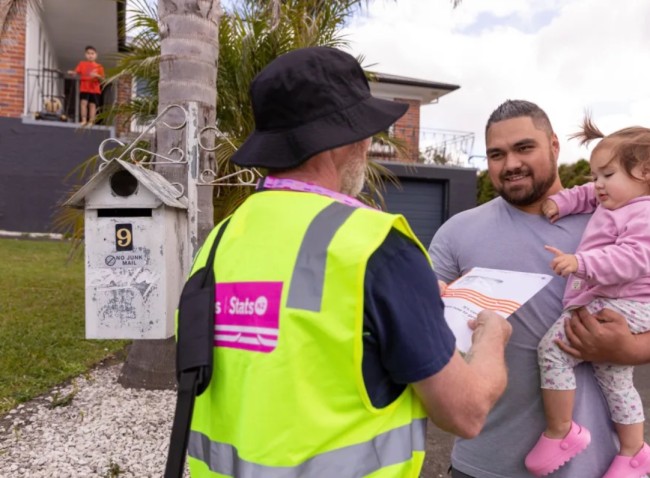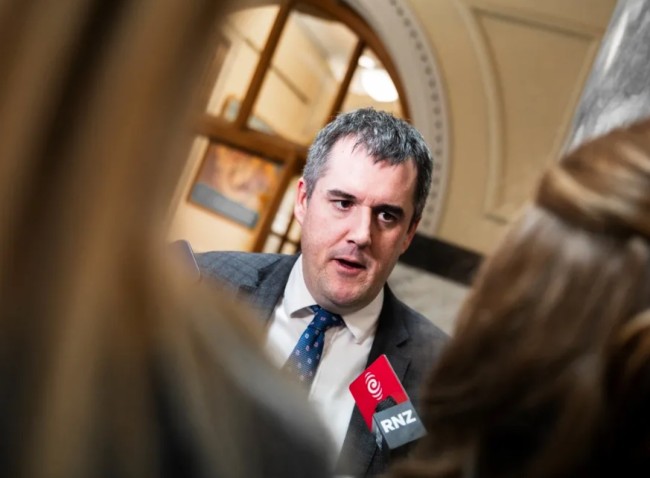
Three waters reforms: Working group urges government financial backing
Councils should have shares in three waters entities - with the government on the hook financially, a working group of mayors and Māori representatives says.
Auckland mayor Phil Goff - a member of the group - has refused to support its proposals, saying they still fail to live up to the needs of the supercity.
The Governance and Accountability working group was tasked with advising Local Government Minister Nanaia Mahuta on how to address concerns over the government's proposal to have drinking, waste and storm water management handed to four regional bodies, and formally reported back yesterday.
Led by public sector advisor Doug Martin and made up of nine mayors, nine Māori representatives and the chair of the reforms steering committee, the group made 47 recommendations.
It urged the government to give councils a shareholding interest in the four waters entities based on population - one share per 50,000 people - partly in an effort to address concerns over loss of ownership and the risk of privatisation.
Western Bay of Plenty mayor Gary Webber, who was on the working group, told Morning Report that would protect against the water service entities or their assets - such as dams or sewerage plants - from being sold or privatised.
"The recommendation is that up to 100 percent of the councillors - or if they went out to a poll of the population - would have to approve the sale of that share, buyt that would also have to have the unanimous approval of all the other councils in the entity.
It would not mean the water service entities paying a dividend, he said.
"What we have said is these are services to the communities and the aim is not to make a profit, it is to run them basically at zero base profit, recovering the full costs of the operation."
The government's proposed law included some protections against privatisation of assets or the entity itself, but the group wanted more - including a requirement for 75 percent of MPs to back any kind of ownership proposal.
A government suggestion of expanding the Regional Representation Group (RRG) membership numbers - up to double the number of councils covered by the entity - was rejected in favour of having 12 to 14 members, with a special setup for the Northland/Auckland entity.
These groups should be led by co-chairs - one from councils and one from iwi / hapū, the group said - to ensure co-governance, and could decide themselves how membership would be apportioned. Smaller sub-groups of the RRGs should also be provided for in the law, the group suggested, to ensure feedback from local areas were not lost.
Debt guarantees
One of the bottom-line requirements for the working group was that it ensure balance sheet separation - a financial term for the separation of ownership and control over assets being borrowed against, which would enable the water service entities (WSEs) to borrow larger sums for repairing and improving water infrastructure.
That was a tricky ask - considering the government's latest proposal appeared to fail to achieve this.
The solution: that the government take on the debt risk, with a recommendation "the Crown confirms that it will provide sufficient financial support to the WSEs to ensure 'balance sheet separation' from councils, that the WSEs have sufficient borrowing capacity to invest in the required infrastructure".
It also said the government should continue to talk with global ratings agency Standard and Poor's - which prepared the initial advice on benefits of different reform models - to ensure balance sheet separation could be achieved under whatever model the minister arrived at, something Internal Affairs has already committed to.
It would not mean the debt going on the government's books or the councils books - just that the debt was guaranteed.
Hutt Mayor Campbell Barry was also on the group, and told Nine to Noon the government needed to look hard at who would play that guarantor role - and councils were clearly not in a position to do that.
"I think that's really important that if government is choosing to go through this reform programme and set up new entities, that ultimately that should not fall back on councils if things were to fail in their operation," he said.
"We're also saying maybe there is a place for government to step into the fold there given their proposals and the reform that they're wanting to take."
He said he hoped the recommendation would be the chance for a reset of the reforms, and more councils may get on board if the group's recommendations were accepted.
"My hope is the sector is able to look at these with an open mind, I think they do address some of the concerns we've heard" - Cambell Barry duration 13′ :10″ from Nine To Noon Add to playlistPlaylist Download as Ogg Download as MP3 Play Ogg in browser Play MP3 in browser
"There needs to be an acknowledgement from government that councils have played a key role in maintaining and building these assets up. So there actually needs to be a little bit of humble pie eaten and an acknowledgement given."
The group was also tasked with ensuring the reforms live up to the aspirations of Mana o te Wai - a mātauranga Māori approach to water which focuses first on the health and wellbeing of water and water systems, secondly on the health of people, and third on social, economic and cultural wellbeing.
These principles should be embedded at every level of the water service entities, the working group said, including by the government and the minister.
The overall system should be reviewed after five years, the group said.
Webber said he expected the moves would go some way towards easing the concerns of the three waters reform critics.
Auckland's unique position
Goff took an alternative view, publishing a minority report along with the group's findings.
He said the proposals would leave Auckland as a minority voice despite contributing the overwhelming majority of assets in Entity A, and called for the Watercare model to remain.
There was insufficient evidence that the government's model would achieve the gains it promised, he said, and the inclusion of stormwater had not been adequately considered.
Barry acknowledged that Auckland's position in the reforms was unique, but said it still had the challenge of the assets being on council own books, and the council's ability to borrow was impacted.
"It's something the government's going to need to grapple with and understand that there is a unique situation in that Entity A area."
"Their borrowing is still limited and we know even in Auckland there is a need to increase investment."
Next steps
Mahuta has refused to commit to enacting the group's recommendations, but is expected to consider them as the government works towards introducing legislation in mid-2022.
"Cabinet will carefully consider the recommendations in today's report from the Working Group on before finalising reform plans and introducing legislation. We know it is important to get this reform right for every New Zealander," Mahuta said in a statement.
"We are committed to ensuring local councils continue to have a vital three waters role by representing the interests of their communities at the highest level of each new water services entity alongside mana whenua, and by owning these entities on behalf of their communities."
She said next steps were aimed at ensuring local expertise would transfer over to the new entities, and ensuring they would be accountable and responsive to communities.
Mahuta said she would provide an update once Cabinet had time to consider the report.
Barry said the government needed to listen and admit it had got things wrong, including the multimillion dollar TV ad campaign which offended councils.
"It needs to acknowledge the genuine concerns of councils and the public. And I say the genuine concerns because I would say not all of them were particularly genuine.
It would also need to adopt most if not all the recommendations to "hit the reset button and move forward" with hopes of getting councils and the public on board.































